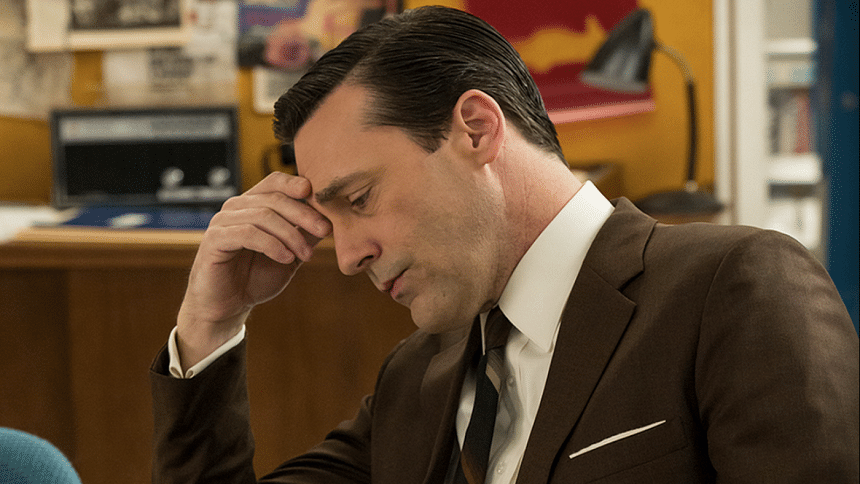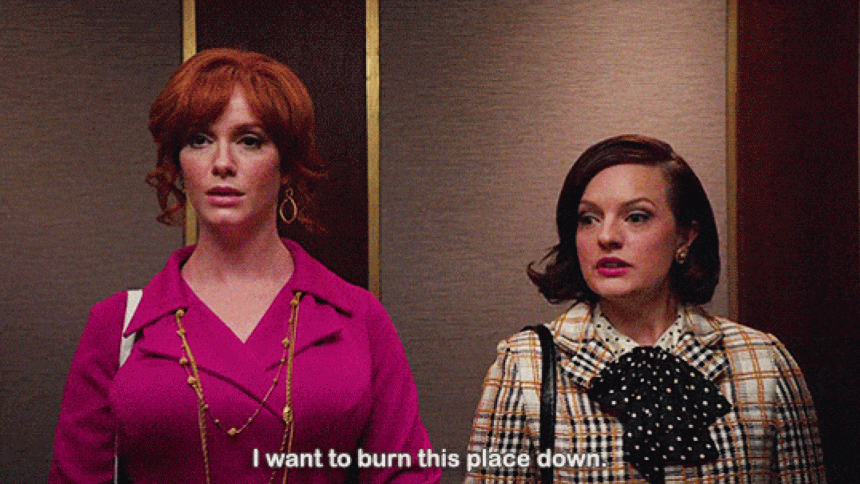It’s time we stop with the sleazy marketing

When I initially started writing this article, the plan was to make it a humour piece. I asked my friends on social media to send me to any "bad" advertisements that they came across online.
It's suffice to say that I had no idea what "bad" was, and after being barraged with some of the worst and most grotesque ads that I have ever seen, I was left with no other option than to write a full-fledged opinion piece.
So, what am I even talking about?
For those of you blessed enough to have not come across these ads, the tl;dr is some popular restaurants and a certain delivery service have taken to making the sleaziest advertisements for some reason.
Initially, it was just a little crass innuendo here and there in their copywriting, but over time, the ads just got sleazier until the more recent ads from some of these restaurants are entirely built on the premise of objectifying women. Some of the ads are too graphic – bordering on pornographic – for me to describe in a youth publication. That's how far things have come.
Now, before diving into all the reasons why these types of ads are problematic, and trust me there are plenty of them, I want to understand and debunk why these businesses are resorting to such forms of advertisement in the first place.
DOES IT EVEN WORK?
"Sex sells" is an age-old adage, and in all fairness, Reichert (2002) mentions how sexual imagery and provocative content was a staple between the late 1800s and for a majority of the 1900s. These kinds of advertisements were extremely successful as well, back then.
However, we no longer live in the 20th century. Severn, Belch and Belch (2013) mentioned how, in the last two decades, how sexual content and advertising is not as effective. While sexual imagery does grab the attention of a group of viewers, it does not mean that your brand or product is getting the same kind of attention.
Your "brand recall" or "copy recall" i.e. if people actually noticed and could recall your brand or the thing being advertised, is much lower when using such methods. Simply put, such advertisements might increase your outreach, but it won't sell your product on the same level.
However, I doubt the marketing "geniuses" who presume themselves to be some modern day Don Draper probably have no concept of this, or just like to wash their hands by pointing to the outreach statistics on their social media platforms. To them, I'll say this: You're all just lazy sleazebags who couldn't make good original content if put into a life and death situation.
Having cleared that up, I'd like to discuss the damage that these advertisements end up causing.
SEXUAL OBJECTIFICATION OF WOMEN
Even in the mildest of ads, objectifying women is a common theme. Almost the foundation of their entire advert. I shouldn't have to explain to anyone that comparing women to food is literally the basic definition of objectification, but I am still doing it because I assume I am dealing with a whole other level of ignorant here.

But aside from this, it's shocking to see businesses run by "educated" people sexually objectifying women. If the state of rape culture was not bad enough, these businesses, who aren't even selling anything remotely sexual, are only amping up this culture.
Zimmerman and Dahlberg (2008) talks about how the sexual objectification of women in such ads usually leave the implication that women are fundamentally dependent on men, and are therefore objects that can be attained either through some form of effort or monetary transaction. And as sexual objectification continues to be prevalent in advertising, it only leads to further normalization of the idea that women are objects for the sexual gratification of men.
While coming across these posts online, I noticed the many people complaining in the comments, disgusted by the imagery and innuendo, asking for answers. But all these businesses know how to do is double down. Pretending as if being infuriated by such crass marketing campaigns is the audience's fault for being too "serious". What was worse, is the insane number of people who have come out to support such ads. With the excuse that "It's just a harmful joke."
If this really is just a joke to them, then how far is too far? What's the standard? Has common decency gone out the window for a few extra bucks? I'll leave you with these questions.
References
1. Researchgate.com (February, 2003). Sex in advertising research: A review of content, effects, and functions of sexual information in consumer advertising.
2. tandfonline.com (May, 2013). The Effects of Sexual and Non-Sexual Advertising Appeals and Information Level on Cognitive Processing and Communication Effectiveness.
3. Journal of Advertising Research (March, 2008). The Sexual Objectification of Women in Advertising: A Contemporary Cultural Perspective.
Aaqib is still stuck in December 2019. Send him the details on how to make a time machine at [email protected]

 For all latest news, follow The Daily Star's Google News channel.
For all latest news, follow The Daily Star's Google News channel. 



Comments